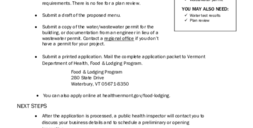What You Need to Know About Getting a Retail Food License
You will need a retail food license if you are operating a restaurant, commercial catering business, food truck, push cart, retail bakery, limited operation, seafood vending or shellfish reshipping/repacking business.

